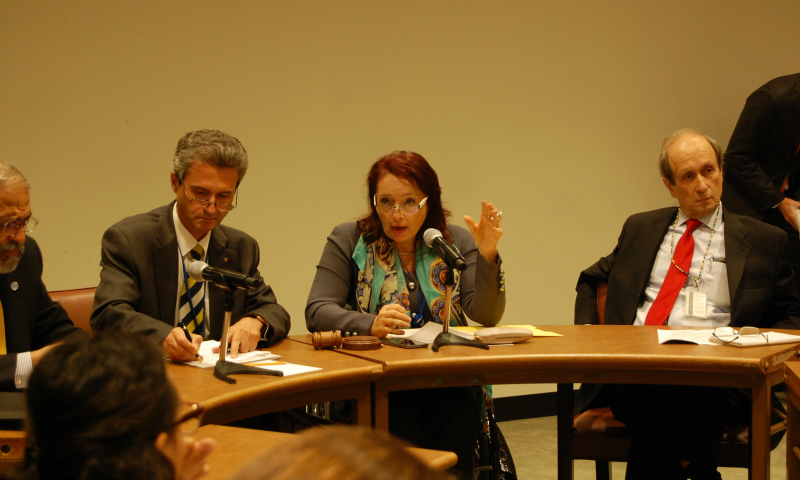
Inclusion and shared prosperity are central tenants of the 2030 Agenda for Sustainable Development. Inclusion ensures that no one is left behind as States and civil societies work to achieve the Sustainable Development Goals (SDGs). But there is more to inclusion than integration into mainstream society. Inclusion means active engagement and empowerment of marginalized communities and taking an active stand against exclusion, which can lead to inequalities, social tensions and even violence.
At a panel discussion on October 3 at UN Headquarters in New York, the Division for Social Policy and Development soft-launched the 2016 Report on the World Social Situation (RWSS) entitled Leaving No One Behind: The Imperative of Inclusive Development. The panel, moderated by DSPD Director Daniela Bas, highlighted key points on what needs to be done for social inclusion to achieve the SDGs.
According to Ambassador of Romania to the UN and Chairperson of the out-going Bureau of the Commission for Social Development, Ion Jinga; the concept of inclusion is at the core of Agenda 2030 because inclusive societies do not discriminate and leave people behind. He noted unprecedented social progress that has been achieved in recent decades. Poverty has declined, health has improved and people are more educated than ever. But marginalized groups often do not see the benefits of this progress. Speaking at the panel, UN Assistant Secretary-General Lenni Montiel highlighted key disparities in social progress of different groups that the report highlights. Opportunities, “depend significantly on social distinctions that separate people and communities into unequal groups,” said Mr. Montiel.
The RWSS presents the realities of social exclusion across the world, and adds that the worst affected from living at the margins are often not captured in social data. For Barry Herman, Professor at the New School in New York, building inclusive societies is not as easy as changing attitudes towards excluded groups. Empowering marginalized peoples means challenging established political systems while motivating governments to act. Social inclusion for sustainable development means a change from the status quo.
However, there are very practical reasons for ensuring no one is left behind. According to the RWSS, “inclusion strengthens not only the social, but also the economic and environmental dimensions of sustainable development.” The impact of inclusion moves beyond the social dimensions of the 2030 Agenda to guiding all 17 SDGs so that no one is left behind.
A summary of the report [A/71/188] was presented to the General Assembly, for their assessment of the SDGs, on the one year anniversary of their establishment. The full report will be launched later in 2016 and an executive summary is available for download.
Learn more about our work on social inclusion at social.un.org.
You can watch the panel event recorded on Facebook Live.
Source & Copyright: UNDESA DSPD
 Welcome to the United Nations
Welcome to the United Nations